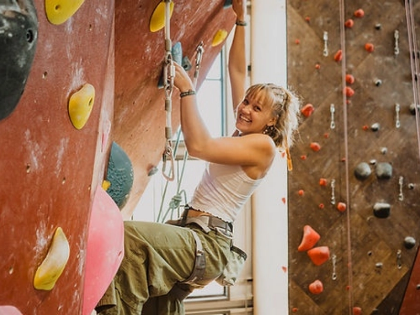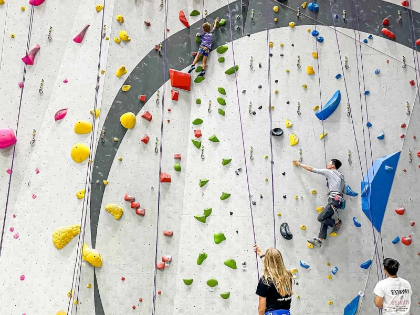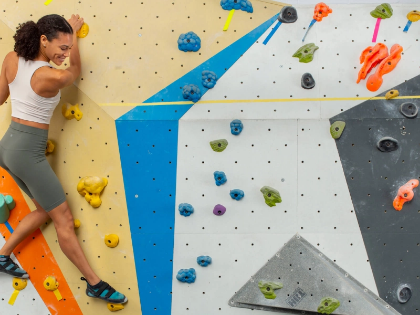When Should Kids Start Bouldering?
Kids should usually wait until they are at least four years old to attempt bouldering. At that point, their ability to solve issues is sufficiently advanced for them to be able to solve basic bouldering puzzles at a gym. Because mats cushion falls, bouldering indoors is safer for smaller children than outdoor climbing. It's also not as scary.
4 to 8 years old
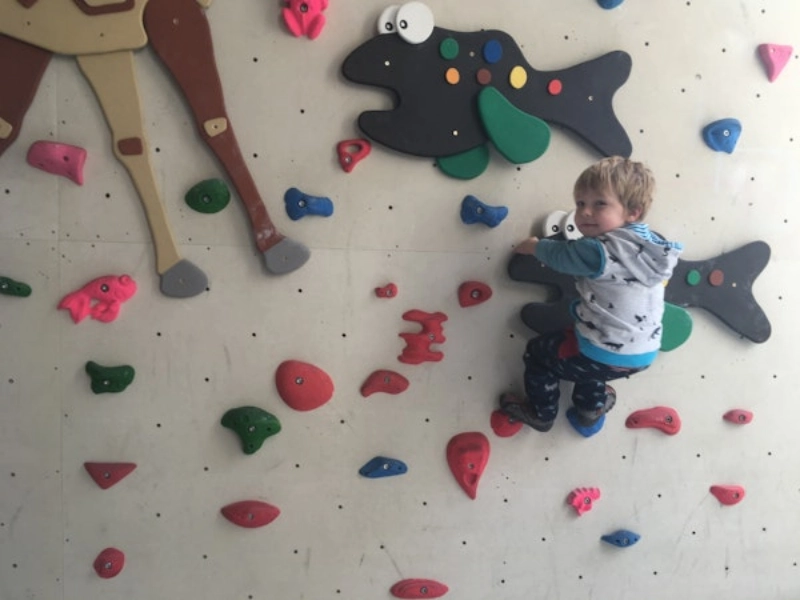
9 to 12 years old
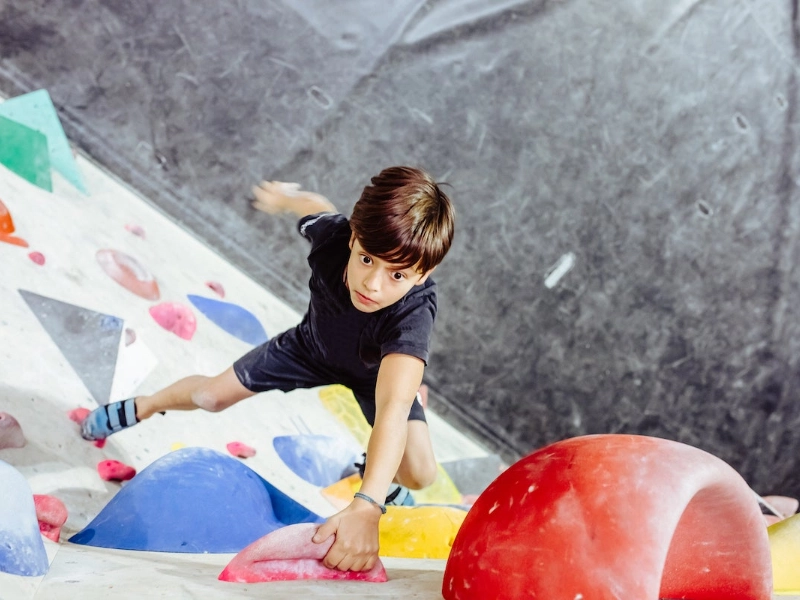 Kids can really get into bouldering as a fun and fitness activity in this age range. When kids wear tight-fitting rock shoes that help them adhere to the wall like geckos, they'll probably have a great time playing on shorter walls. Kids could even be prepared to attempt some more difficult bouldering routes.
This is also an excellent age to continue reinforcing correct falling skills and to introduce strength and flexibility exercises specifically designed for climbing. Try out a youth bouldering team programme as well; these provide a more organised approach to the activity and the chance to participate in junior bouldering contests.
Make sure your youngster has a spotter if they are attempting more difficult bouldering routes. Be mindful of other climbers and make sure there is nothing on the pads beneath the issue, such as water bottles that could twist ankles during a fall.
Kids can really get into bouldering as a fun and fitness activity in this age range. When kids wear tight-fitting rock shoes that help them adhere to the wall like geckos, they'll probably have a great time playing on shorter walls. Kids could even be prepared to attempt some more difficult bouldering routes.
This is also an excellent age to continue reinforcing correct falling skills and to introduce strength and flexibility exercises specifically designed for climbing. Try out a youth bouldering team programme as well; these provide a more organised approach to the activity and the chance to participate in junior bouldering contests.
Make sure your youngster has a spotter if they are attempting more difficult bouldering routes. Be mindful of other climbers and make sure there is nothing on the pads beneath the issue, such as water bottles that could twist ankles during a fall.
13 to 15 years old
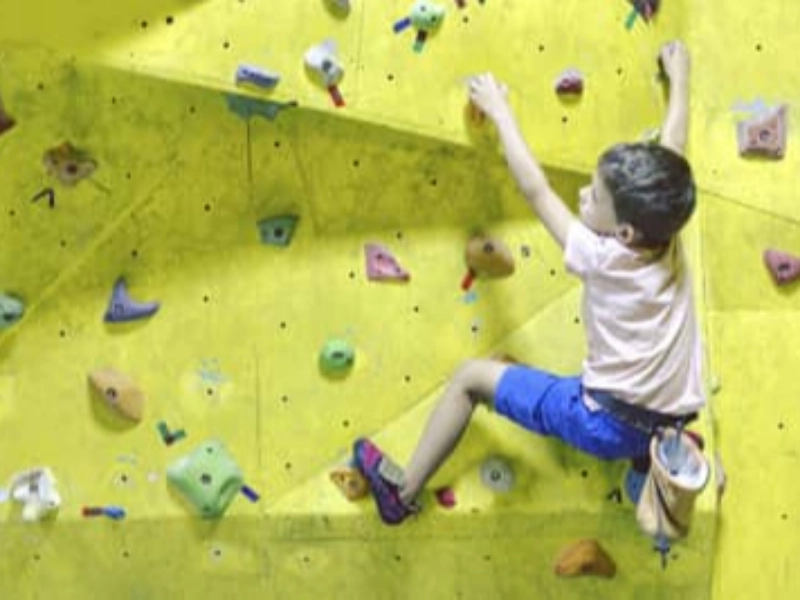 This age group of kids is prepared to advance to a basic rope climbing programme. If they have a decent pair of kids climbing shoes that fit them well, they can begin bouldering on shorter walls and enjoy playing around on simpler problems at a cliff or at a gym.
Outdoor bouldering is a more difficult exercise that needs more preparation to keep your kids safe. This preparation should include providing heavily padded landing spots in case of falls and providing frequent, attentive spotting. Purchasing a helmet for your children is also a smart move, as it can shield them from serious head injuries.
Frequent bouldering builds endurance and muscles as its own strength training programme. Youths shouldn't be encouraged to specialise in the activity, though, unless they show a great passion and continuous devotion. Any sport where a person specialises too early runs the risk of repetitive strain injuries, which are particularly prevalent in young athletes. (1, 2)
This age group of kids is prepared to advance to a basic rope climbing programme. If they have a decent pair of kids climbing shoes that fit them well, they can begin bouldering on shorter walls and enjoy playing around on simpler problems at a cliff or at a gym.
Outdoor bouldering is a more difficult exercise that needs more preparation to keep your kids safe. This preparation should include providing heavily padded landing spots in case of falls and providing frequent, attentive spotting. Purchasing a helmet for your children is also a smart move, as it can shield them from serious head injuries.
Frequent bouldering builds endurance and muscles as its own strength training programme. Youths shouldn't be encouraged to specialise in the activity, though, unless they show a great passion and continuous devotion. Any sport where a person specialises too early runs the risk of repetitive strain injuries, which are particularly prevalent in young athletes. (1, 2)
16 to 18 years old
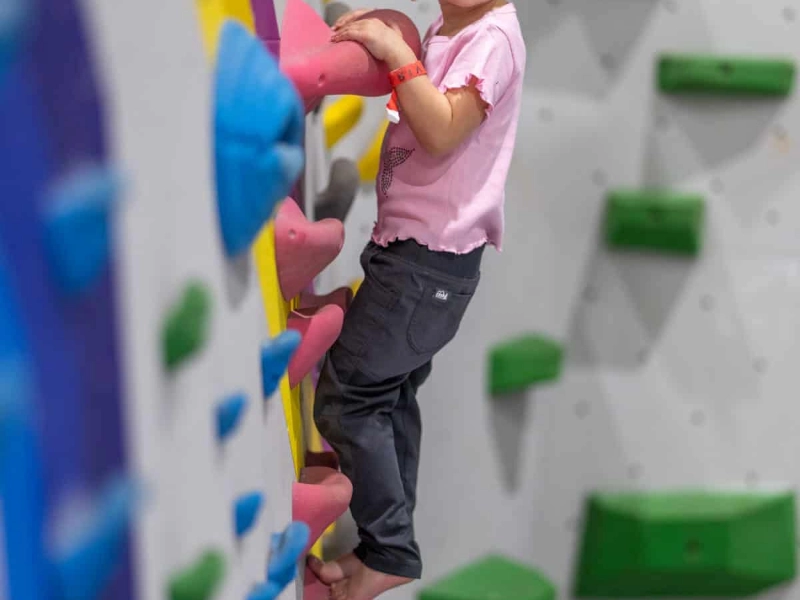 Bouldering is a sport that has numerous advantages for climbers of all ages and has no age restrictions. Climbing is an enjoyable way to maintain your physical activity levels, which is crucial to do throughout your life. Bouldering is not only an excellent physical exercise, but it also fosters cerebral growth and is a social activity.
With the correct gear, bouldering is even accessible to young children. Get them a decent pair of climbing shoes if they want to start rock climbing, and then take them to the gym or outdoor crags where they may play on the shorter walls. Monkeying around and pushing themselves on the issues will be a lot of fun, especially if they have rock shoes that fit snugly and can be changed by two full sizes.
It is advisable to hold off on giving adolescent climbers extensive finger strength training and international bouldering competition eligibility until they are in their late teens. Until then, keeping young climbers engaged in a range of sports and activities will help them build a strong physical foundation and reduce their chance of injury.
Bouldering is a sport that has numerous advantages for climbers of all ages and has no age restrictions. Climbing is an enjoyable way to maintain your physical activity levels, which is crucial to do throughout your life. Bouldering is not only an excellent physical exercise, but it also fosters cerebral growth and is a social activity.
With the correct gear, bouldering is even accessible to young children. Get them a decent pair of climbing shoes if they want to start rock climbing, and then take them to the gym or outdoor crags where they may play on the shorter walls. Monkeying around and pushing themselves on the issues will be a lot of fun, especially if they have rock shoes that fit snugly and can be changed by two full sizes.
It is advisable to hold off on giving adolescent climbers extensive finger strength training and international bouldering competition eligibility until they are in their late teens. Until then, keeping young climbers engaged in a range of sports and activities will help them build a strong physical foundation and reduce their chance of injury.



